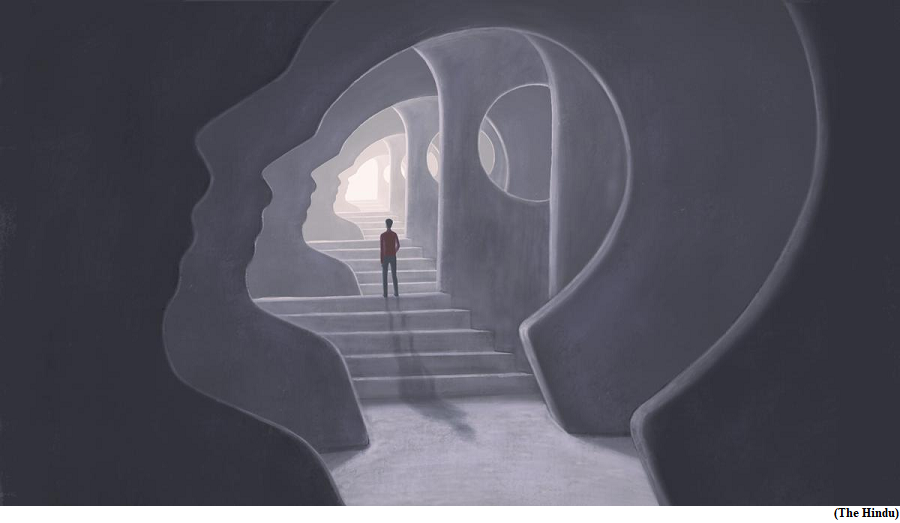Spare a thought for psychiatric caregivers too (GS Paper 2, Health)

Context:
- The National Mental Health Programme and the decentralised District Mental Health Programme remain focused on the patient but neglect the caregiver.
Need for Mental Health:
- According to National Health Mission estimates, 6%-7% of India’s population suffers from mental disorders, i.e., one in four families is likely to have at least one member with a behavioural or mental health disorder.
- The situation worsened during the COVID-19 pandemic as long periods of isolation, the fear of losing loved ones, financial difficulty, and uncertainty about the future increased stress levels across social segments. Most of these cases remain untreated due to ignorance and social stigma.
- Without proper diagnosis, the patient and their families keep suffering as mental health responses remain mired in myths, stigmas, and taboos.
Causes for caregiver stress:
- Over 90% of psychiatric patients in India live with their families. The caregiver is under considerable stress because of the physical and emotional caregiving along with the social isolation, financial difficulties and troublesome behaviour of the patient.
- Chronic mental illness in a nuclear household disrupts daily life and drains family resources. Moreover, women caregivers face challenges in balancing caregiving, career, child rearing, and household chores, and are less likely to receive informal support for psychiatric treatment.
Impact:
- Prolonged caregiving negatively impacts the psychological well-being of caregivers. Caregivers use various strategies to cope which include sharing, spirituality, hobbies, and self-gas lighting; but unhealthy coping mechanisms can negatively impact both caregivers and patients.
- Hence, the importance of caring for the family caregivers. Counselling services are currently provided to caregivers on request.
Structured intervention:
- Given the prolonged distress experienced by caregivers, it is essential to introduce a structured intervention programme to educate and support the caregivers of psychiatric patients.
- It should educate them about the illness and their roles and responsibilities, leading to a better sense of control over their own life and helping to cope with the caregiver role.
- Studies in developed countries show that providing support to family caregivers at the onset of the psychiatric illness of loved ones is crucial for the success of the intervention.
- Successful intervention models include cognitive behavioural therapy, psychoeducational skill building, family counselling, and peer-support.
Challenges:
- A preliminary inquiry into the preparedness of health-care systems to provide caregiver support raises multiple concerns.
- A lack of trained specialists hinders cost-effective intervention model implementation. India has 43 State-run mental health institutions with 3,800 psychiatrists and 900 clinical psychologists i.e., one psychiatrist and psychologist for every four lakh and 16 lakh citizens, respectively.
- Insufficient budget allocation for mental health patients also raises concerns of developing intervention for psychiatric care-givers.
Gaps in insurance:
- The Mental Healthcare Act 2017 provided a corrective step with the mandate to treat mental disorders on a par with physical disorders for insurance coverage.
- Government schemes provided by public sector insurance companies such as the flagship Ayushman Bharat provide coverage for mental disorders. However, coverage by private insurers remains limited.
- Several non-governmental organisations and community movements such as Mindroot, Lonepack, and the White Swan Foundation have been engaged in community support work for people with mental illness and their caregivers. However, given the severity of the issue, their scale remains insignificant.
Way Forward:
- In the backdrop of reducing family size, increasing life expectancy and poor institutional support, the caregiver burden in case of psychiatric illnesses is expected to keep worsening.
- The lack of tailored interventions may negatively affect caregiver well-being and patient treatment participation.
- A comprehensive treatment of severe psychiatric illnesses in the future would need building effective partnerships between health-care professionals, informal caregivers, and psychosocial interventions, where required.


